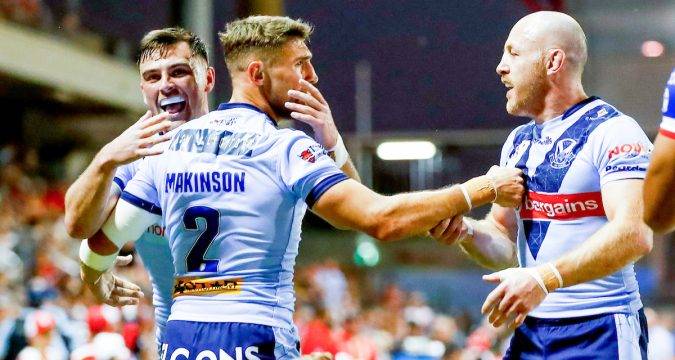 AS the UK prepares itself for a positively balmy 12 degrees next weekend, St Helens will be gearing up to play in almost 40 degrees heat in the World Club Challenge against Penrith Panthers.
The warning shot has already been fired after a New South Wales Cup referee was hospitalised at the weekend due to dehydration after officiating a game in P
AS the UK prepares itself for a positively balmy 12 degrees next weekend, St Helens will be gearing up to play in almost 40 degrees heat in the World Club Challenge against Penrith Panthers.
The warning shot has already been fired after a New South Wales Cup referee was hospitalised at the weekend due to dehydration after officiating a game in P ‘Deadly’ weather warning for World Club Challenge as St Helens gear up for Penrith Panthers clash
 AS the UK prepares itself for a positively balmy 12 degrees next weekend, St Helens will be gearing up to play in almost 40 degrees heat in the World Club Challenge against Penrith Panthers.
The warning shot has already been fired after a New South Wales Cup referee was hospitalised at the weekend due to dehydration after officiating a game in P
AS the UK prepares itself for a positively balmy 12 degrees next weekend, St Helens will be gearing up to play in almost 40 degrees heat in the World Club Challenge against Penrith Panthers.
The warning shot has already been fired after a New South Wales Cup referee was hospitalised at the weekend due to dehydration after officiating a game in P 